| Listing 1 - 10 of 33 | << page >> |
Sort by
|
Book
ISBN: 0748620362 9780748620364 Year: 2004 Volume: 24 Publisher: Edinburgh : Edinburgh university press,
Abstract | Keywords | Export | Availability | Bookmark
 Loading...
Loading...Choose an application
- Reference Manager
- EndNote
- RefWorks (Direct export to RefWorks)
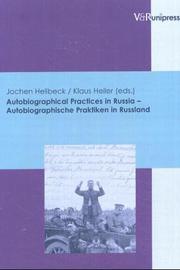
Abstract | Keywords | Export | Availability | Bookmark
 Loading...
Loading...Choose an application
- Reference Manager
- EndNote
- RefWorks (Direct export to RefWorks)
Book
ISBN: 2266118579 9782266118576 Year: 2004 Volume: 252 Publisher: Paris Pocket
Abstract | Keywords | Export | Availability | Bookmark
 Loading...
Loading...Choose an application
- Reference Manager
- EndNote
- RefWorks (Direct export to RefWorks)
Literature --- Literary form --- Criticism --- Genres littéraires --- Critique --- Genres littéraires
Book
ISBN: 9788876947698 8876947698 Year: 2004 Publisher: Alessandria: Ed. dell'Orso,
Abstract | Keywords | Export | Availability | Bookmark
 Loading...
Loading...Choose an application
- Reference Manager
- EndNote
- RefWorks (Direct export to RefWorks)
Greek philology --- Greek language --- Literature and society --- Literary form
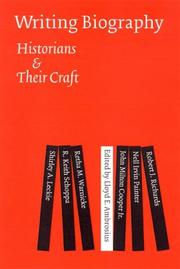
ISBN: 0803204124 9780803204126 0803210663 9780803210660 Year: 2004 Publisher: Lincoln (Nebr.) : University of Nebraska press,
Abstract | Keywords | Export | Availability | Bookmark
 Loading...
Loading...Choose an application
- Reference Manager
- EndNote
- RefWorks (Direct export to RefWorks)
" The historian as biographer must resolve questions that reflect the dual challenge of telling history and telling lives: How does the biographer sort out the individual's role within the larger historical context? How do biographical studies relate to other forms of history? Should historians use different approaches to biography, depending on the cultures of their subjects? What are the appropriate primary sources and techniques that scholars should use in writing biographies in their respective fields? In 'Writing Biography', six prominent historians address these issues and reflect on their varied experiences and divergent perspectives as biographers. Shirley A. Leckie examines the psychological and personal connections between biographer and subject; R. Keith Schoppa considers the pervasive effect of culture on the recognition of individuality and the presentation of a life; Retha M. Warnicke explores past context and modern cultural biases in writing the biographies of Tudor women; John Milton Cooper Jr. discusses the challenges of writing modern biographies and the interplay of the biographer's own experiences; Nell Irvin Painter looks at the process of reconstructing a life when written documents are scant; and Robert J. Richards investigates the intimate relationship between life experiences and new ideas. Despite their broad range of perspectives, all six scholars agree on two central points: biography and historical analysis are inextricably linked, and biographical studies offer an important tool for analyzing historical questions.
Biography as a literary form. --- Biography --- Authorship --- Prose literature --- History and criticism --- Technique
Book
ISBN: 3110437090 3110442736 Year: 2004 Publisher: Zurich ; Munchen : K.G. Saur Verlag,
Abstract | Keywords | Export | Availability | Bookmark
 Loading...
Loading...Choose an application
- Reference Manager
- EndNote
- RefWorks (Direct export to RefWorks)
Das Deutsche Theater-Lexikon enthält genau recherchierte Artikel über Schauspieler, Sänger, Regisseure, Theaterleiter, Dramatiker usw., gibt Auskunft über alle wichtigen Sachbegriffe und Organisationsformen und führt die wichtigsten Theaterstädte und Spielhäuser auf. Im Lexikon finden sich Ort und Zeitpunkt von Uraufführungen von Sprechstücken, Opern und Operetten, Lebensdaten von Künstlern und eine chronologische Auflistung der Engagements von Bühnenschaffenden. Jeder Eintrag enthält eine Bibliographie der Sekundärliteratur. The Deutsches Theater-Lexikon [Dictionary of German Theatre] provides a host of information on every aspect of the stage. It comprises meticulously researched contributions on actors, singers, directors, playwrights and theatre managers etc. In addition, it defines significant key words and organizational structures, and portraits outstanding playhouses and venues. The dictionary lists date and place of first nights of plays, operas and operettas; biographical dates of artists; as well as chronological listings of the performers' engagements. Each entry contains a bibliography of relevant secondary literature.
Biography as a literary form. --- Biography --- Authorship --- Prose literature --- History and criticism --- Technique
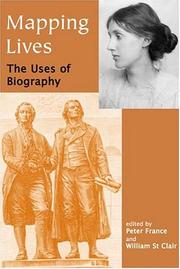
ISBN: 0197263186 9780197263181 Year: 2004 Publisher: Oxford : Oxford university press,
Abstract | Keywords | Export | Availability | Bookmark
 Loading...
Loading...Choose an application
- Reference Manager
- EndNote
- RefWorks (Direct export to RefWorks)
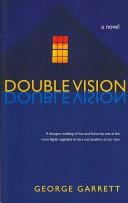
ISBN: 0817381872 9780817381875 9780817354688 0817354689 0817314288 9780817314286 Year: 2004 Publisher: Tuscaloosa University of Alabama Press
Abstract | Keywords | Export | Availability | Bookmark
 Loading...
Loading...Choose an application
- Reference Manager
- EndNote
- RefWorks (Direct export to RefWorks)
A shotgun marriage of fact and fiction by one of the most highly regarded writers and teachers of our time. A writer named George Garrett, suffering from double vision as a result of a neurological disorder, is asked to review a recent, first biography of the late Peter Taylor, a renowned writer who has been his long-time friend and neighbor in Charlottesville. Reflecting on their relationship, Garrett conceives of a character-not unlike himself-a writer in his early 70s, ill and suffering from double vision, named Frank Toomer. He gives Toomer a neighbor, a distin
Authors --- Biographers --- College teachers --- Literary quarrels --- Biography as a literary form --- Feuds, Literary --- Literary feuds --- Quarrels, Literary
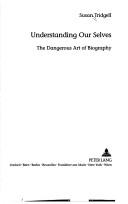
ISBN: 3039101668 0820469769 9783039101665 9780820469768 Year: 2004 Volume: 12 Publisher: Oxford Lang
Abstract | Keywords | Export | Availability | Bookmark
 Loading...
Loading...Choose an application
- Reference Manager
- EndNote
- RefWorks (Direct export to RefWorks)
Modern Western biography has become one of the most popular and most controversial forms of literature. Critics have attacked its tendency to rely on a strong narrative drive, its focus on a single person's life and its tendency to delve ever more deeply into that person's inner, private experience, though these tendencies seem to have only increased biography's popularity. To date, however, biography has been a rarely studied literary form. Little serious attention has been given to the light biographies can shed on philosophical problems, such as the intertwining of knowledge and power, or the ways in which we can understand lives, or terms like 'the self'. Should selves be seen as relational or as autonomous? What of the 'lies and silences' of biographies, the ways in which embodiment can be ignored? A study of these problems allows engagement with a range of philosophers and literary theorists, including Roland Barthes, Lorraine Code, Michel Foucault, Emmanuel Levinas, Alasdair MacIntyre, Ray Monk, Friedrich Nietzsche, Paul Ricoeur, Richard Rorty and Charles Taylor. Biography can be a dangerous art, claiming to know 'just how you feel'. This book explores the double-edged nature of biography, looking at what it reveals about both narratives and selves.
Non-fiction --- Biography as a literary form --- Self in literature --- Biography --- History and criticism --- Technique --- Authorship --- Prose literature --- BIOGRAPHIES (GENRE LITTERAIRE) --- LITTERATURE --- HISTOIRE ET CRITIQUE --- PHILOSOPHIE
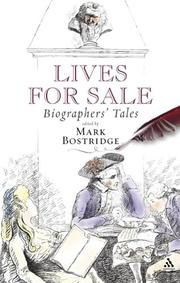
ISBN: 082648784X 0826475736 Year: 2004 Publisher: London ; New York : Continuum,
Abstract | Keywords | Export | Availability | Bookmark
 Loading...
Loading...Choose an application
- Reference Manager
- EndNote
- RefWorks (Direct export to RefWorks)
Biography as a literary form. --- Biographers --- Biographie (Genre littéraire) --- Biographes --- Great Britain --- Grande-Bretagne --- Biography --- History and criticism. --- Biographies --- Histoire et critique
| Listing 1 - 10 of 33 | << page >> |
Sort by
|

 Search
Search Feedback
Feedback About UniCat
About UniCat  Help
Help News
News